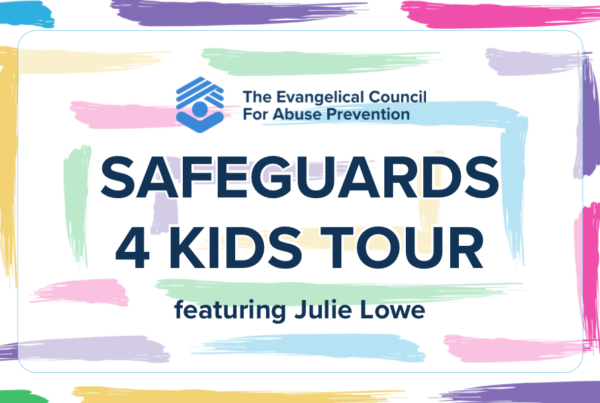Benjamin Franklin once famously recognized that “an ounce of prevention is worth a pound of cure.” In the area of churches protecting the most vulnerable among its members, that axiom could not be more true. In fact, when one looks at all of the potential benefits child protection policies (“CPPs”) can provide, mere ounces of prevention can be worth a ton!
Written CPPs go a long way to establish a number of important things in your church. First, they establish the proper dynamic between Workers and those whom you serve (i.e., you are going to be intentional about how you interact with—and safeguard—children and youth). Second, they help ensure everyone is on the same page when it comes to what you deem “the right way” to run your children & youth ministries. Third, they communicate—both your church and the community which you are trying to reach—that your church is not willing to leave the safety and security of the minors in your care to chance. Such written CPPs broadcast to everyone who is interested that you take the issue of protecting children seriously.
Unfortunately, well-suited policies are rarely one-size-fits-all. Typically, a complete set of CPPs (no matter how well-crafted) cannot simply be pulled from another church and plugged in at yours. The reason for this is that not all churches operate in the same manner. Some churches are larger and more operationally complex. Some churches are urban; other rural. Some churches have a simple campus; others extensive. The larger and more complex your church, staff and campus, the more sophisticated a set of policies you will typically need. At a minimum, however, you would want some fairly universal items:
- Statement(s) making it clear that your church will simply not tolerate sexual harassment, abuse or any other inappropriate sexual behavior of any type.
- A non-exclusive list of “inappropriate” behavior would not be a bad idea.
- Sometimes definitions may be required.
- A procedure for reporting harassment, abuse or any other problematic behavior. This reporting may be internal but should always follow the dictates of any mandatory reporting requirement which may exist in your state.
- An established procedure for handling/investigating the accusation internally.
- A clear warning that inappropriate behavior will lead to serious discipline (e.g., termination).
Policies should outline what kinds of interactions are simply unacceptable. They should set clear boundaries as to how/where/when staff and leadership should interact with children & youth.
While there are a host of other items your church might consider including in its CPPs, here are a few more policies to consider:
- The Two-Adult Rule:
- This states that an adult should never be alone with a child in the minstry’s care that they are not related to.
- This should apply in ALL settings if possible.
- This is for the protection of BOTH the children and the workers.
- Using a married couple or family members to satisfy this rule is not ideal (and should be avoided if possible).
- The Six-Month (or more) Membership Rule:
- This states that volunteers should be a member of the church—and have been so for no less than six months—before working with minors.
- Failure to do this is flirting with disaster. Predators ALWAYS seek to ingratiate themselves to the leadership…and do so as quickly as possible.
- Ensure Clear Sightlines into Each Classroom
- Windows are an easy way to do this.
- Security cameras in classrooms and other public areas can be another good idea.
Regardless of the simplicity or complexity of your CPP paradigm, here are a few bare-minimum items that all churches should have in place:
- Some sort of background check program that ALL workers are required to undergo.
- Requiring prospective workers to provide references (that you actually call).
- Having an appropriate accountability framework that should include both periodic reviews/evaluations and a rotation concept that provides some time-off to workers in the children and youth ministry.
- Annual programs to ensure everyone in leadership is familiar with the church’s CPPs. As part of such training the church should:
- Teach and emphasize age-appropriate interaction standards; including how to appropriately engage with a minor (both physically and verbally).
- Teach how to spot abuse that may be happening (in the church or elsewhere).
When all is said and done, there is a seemingly-obvious encouragement than cannot be emphasized too much:
ALWAYS be willing to abide-by and enforce your church’s policies; no matter who is involved or what it might require.
Churches must avoid at all costs having policies in place but simply allowing them to be ignored and/or violated. The inescapable truth is this: having good policies—and then not following them—is FAR WORSE than not having them at all.
Finally, here are two overarching questions all churches should use to test their CPPs:
- Does this honor God and shine a positive light on His kingdom work in your church community?
- What will a group of 12 strangers (who may or may not care for our church…or organized religion in general) think about what you have done (or refused to do) in this situation?
The answers to those two questions can provide valuable guidance to whether your CPPs are both legally and biblically sufficient for you and your church.





